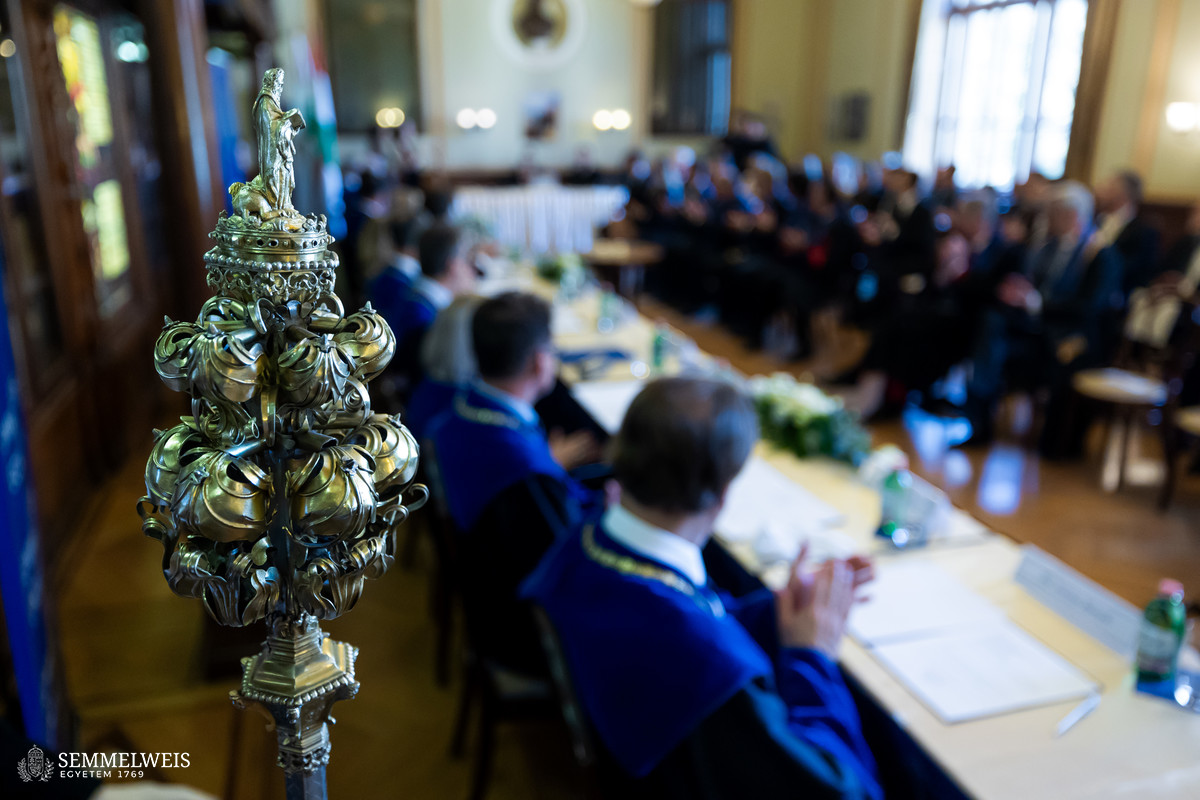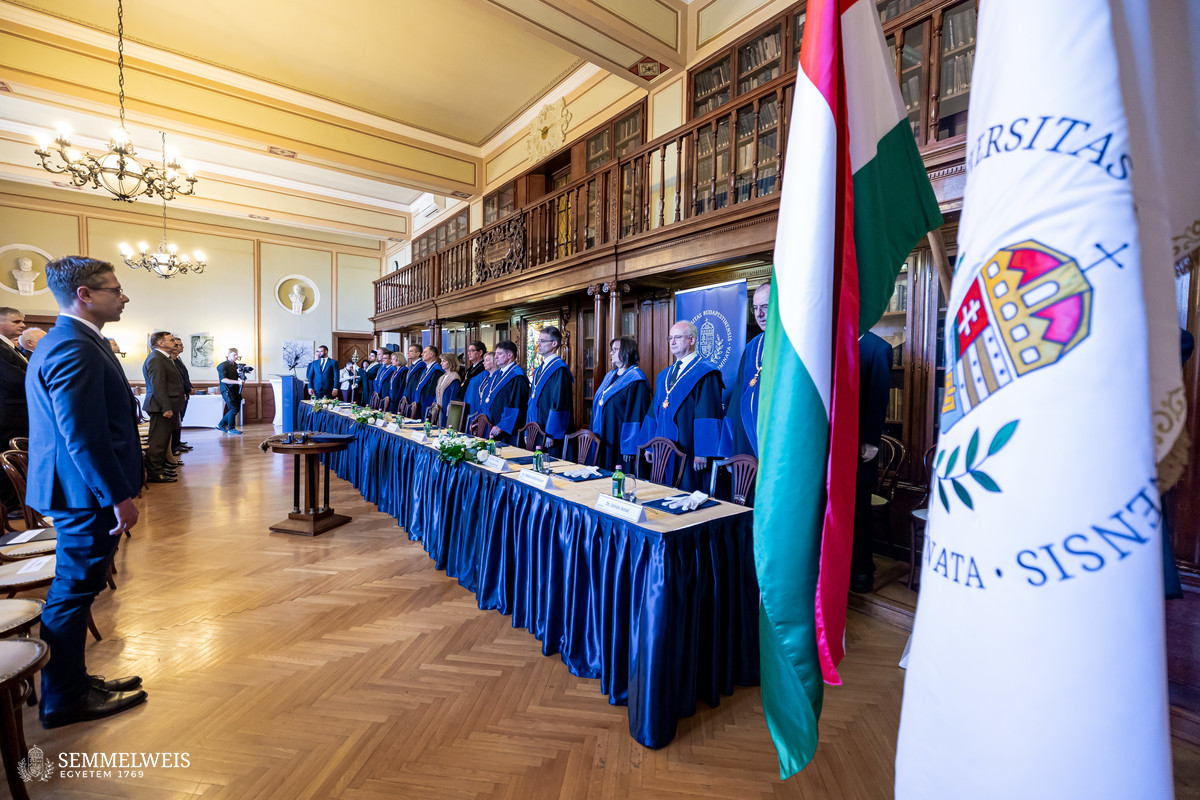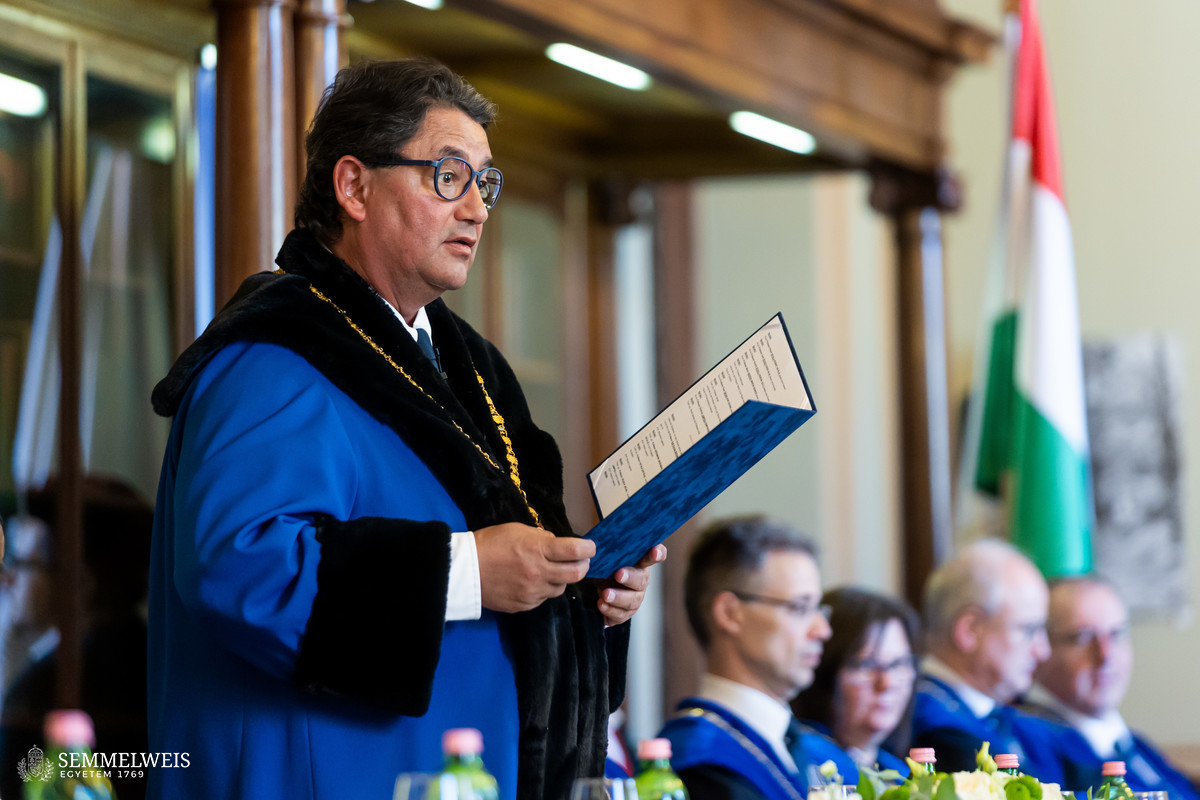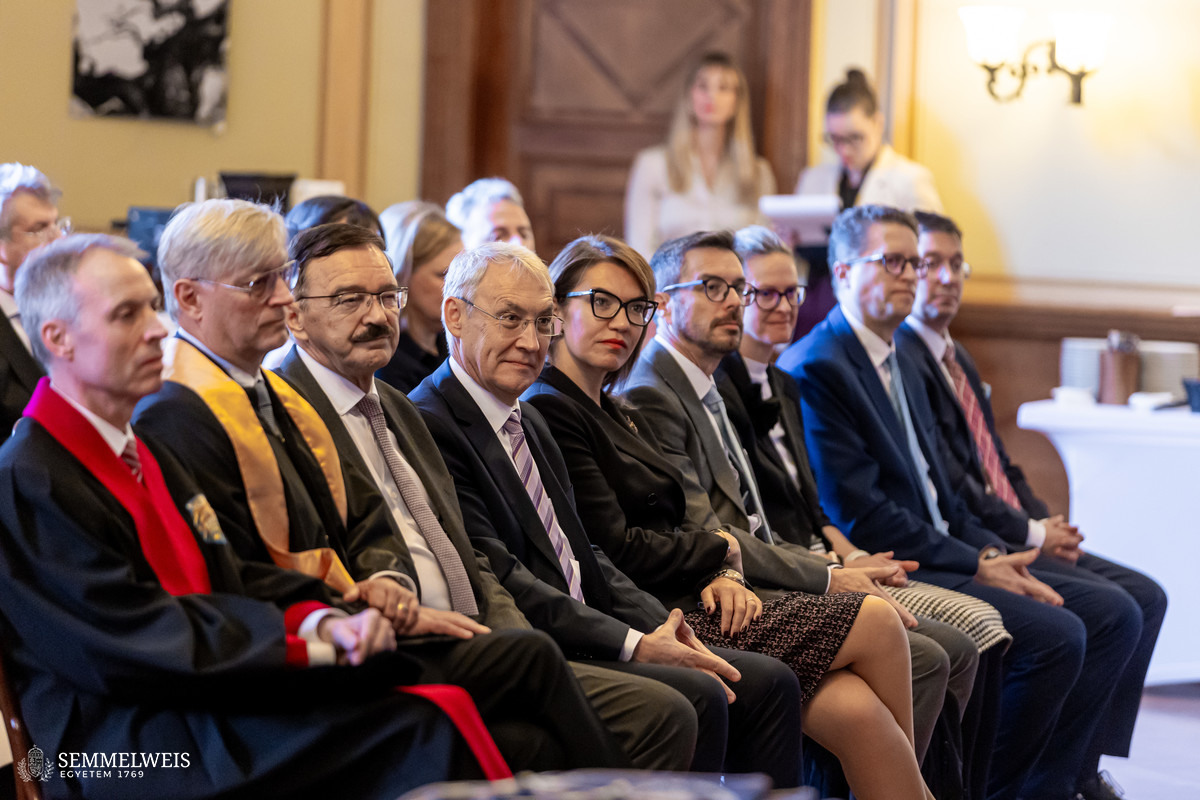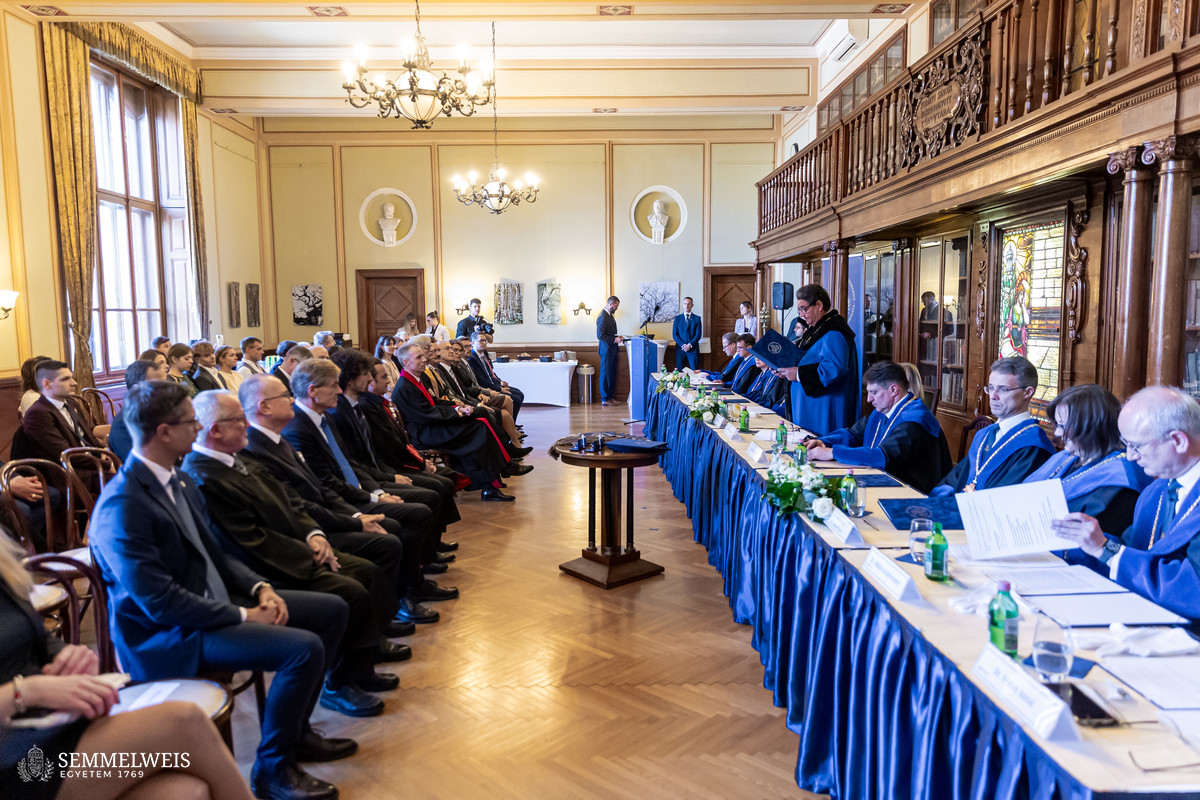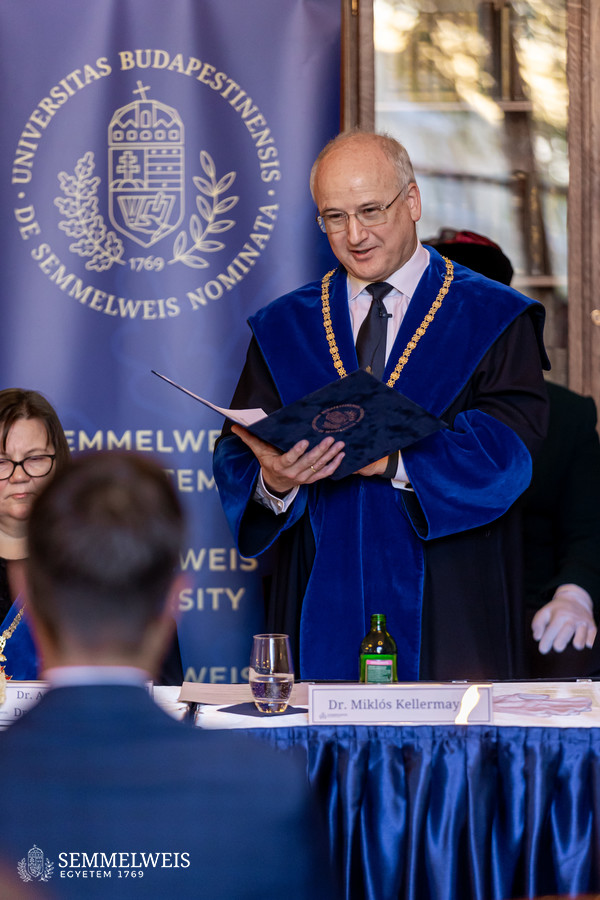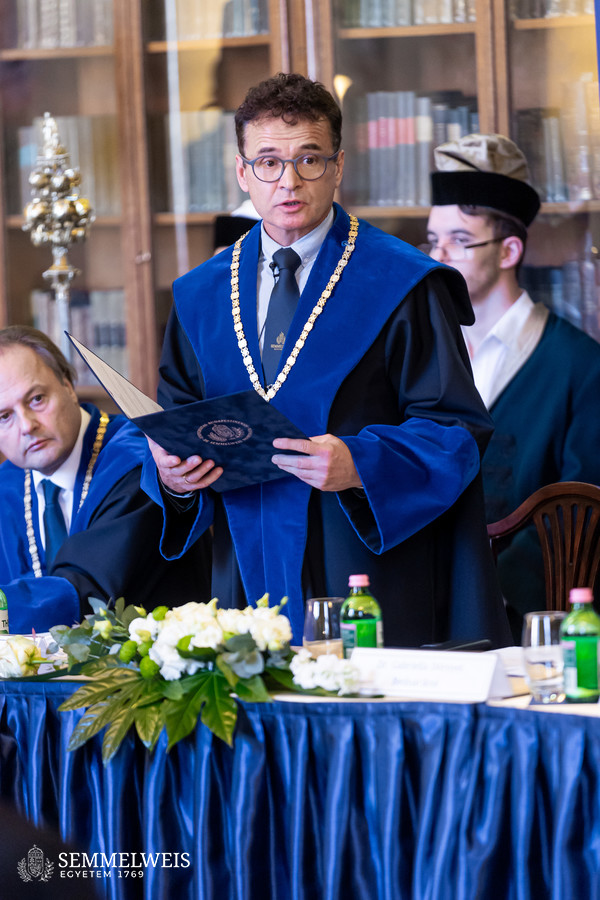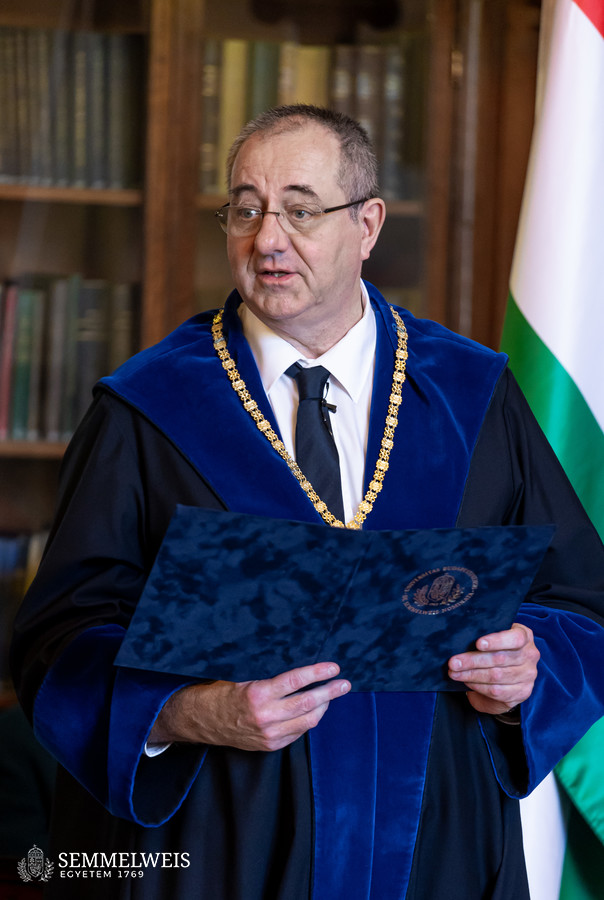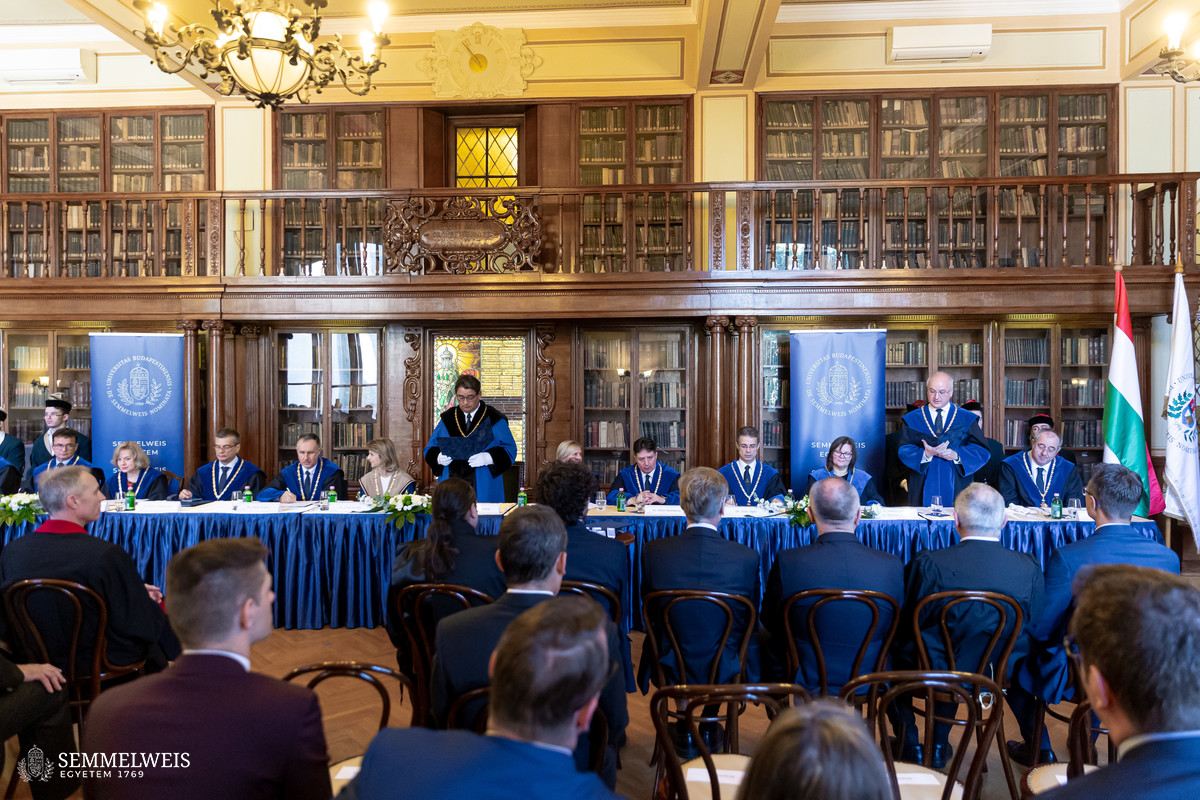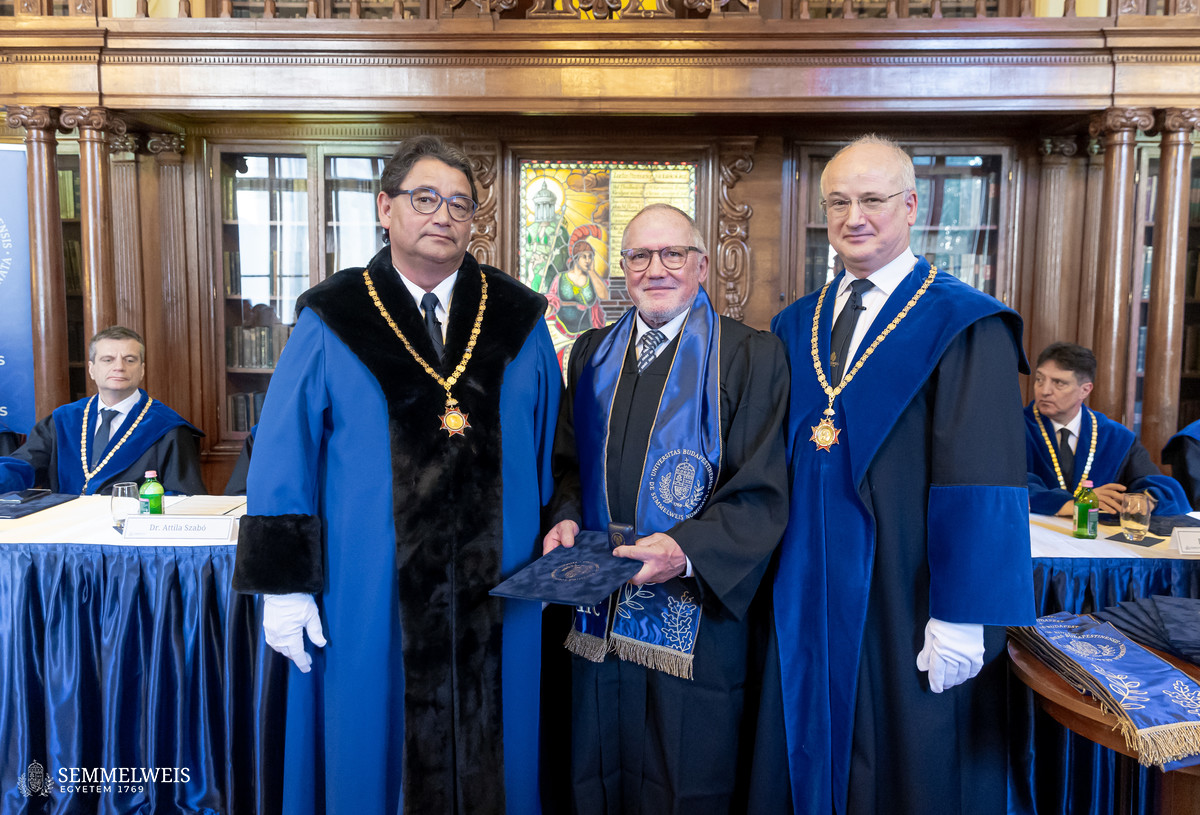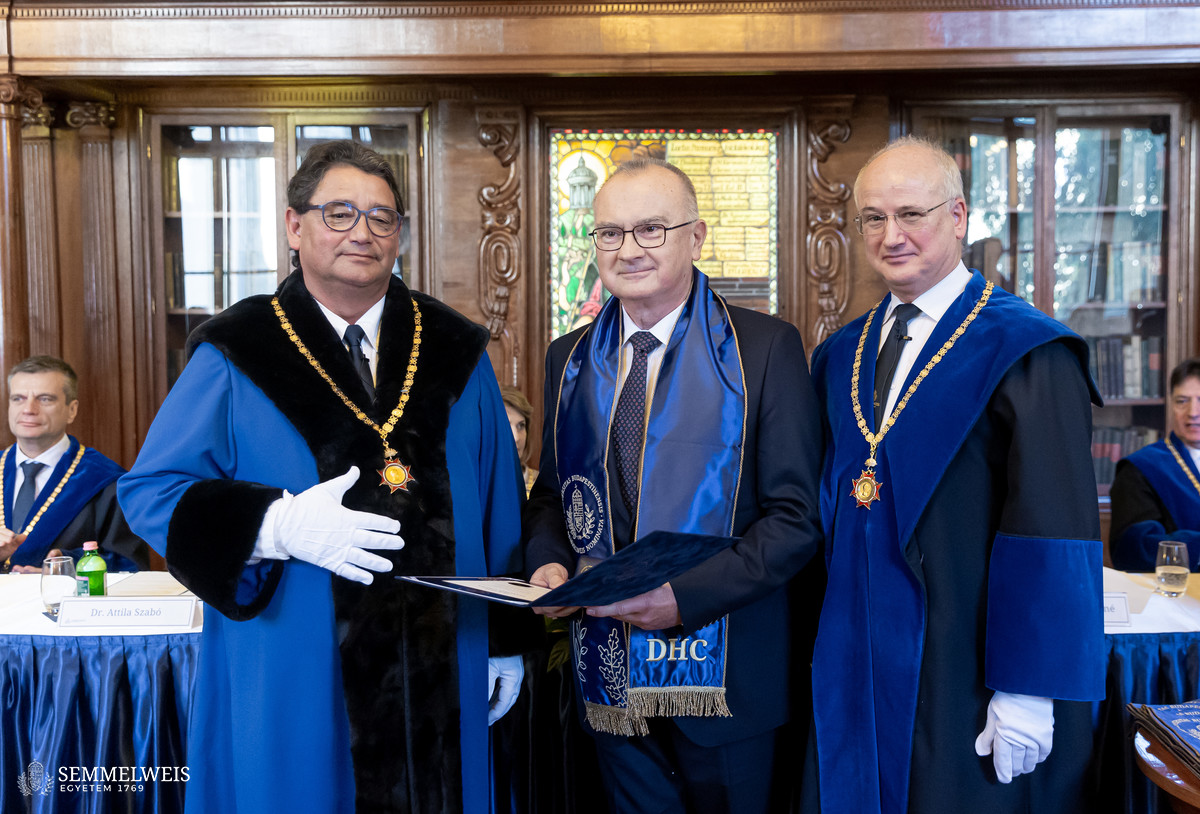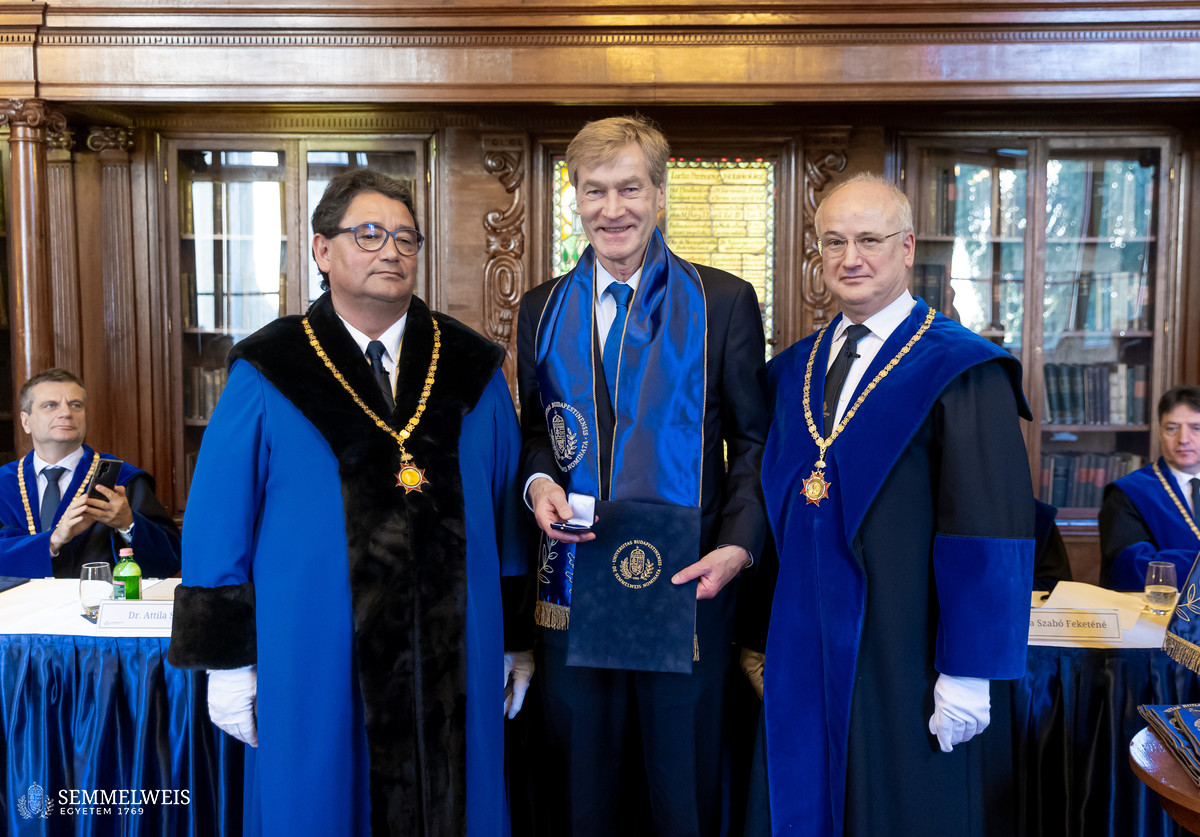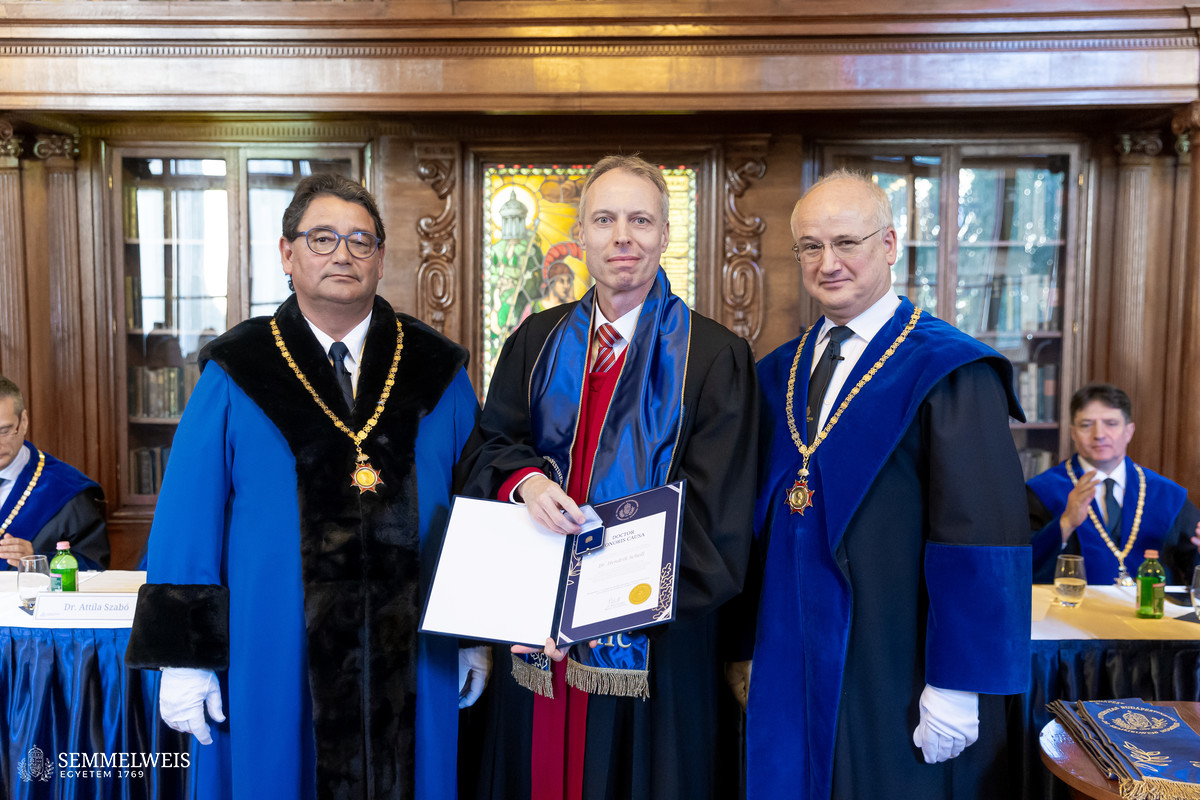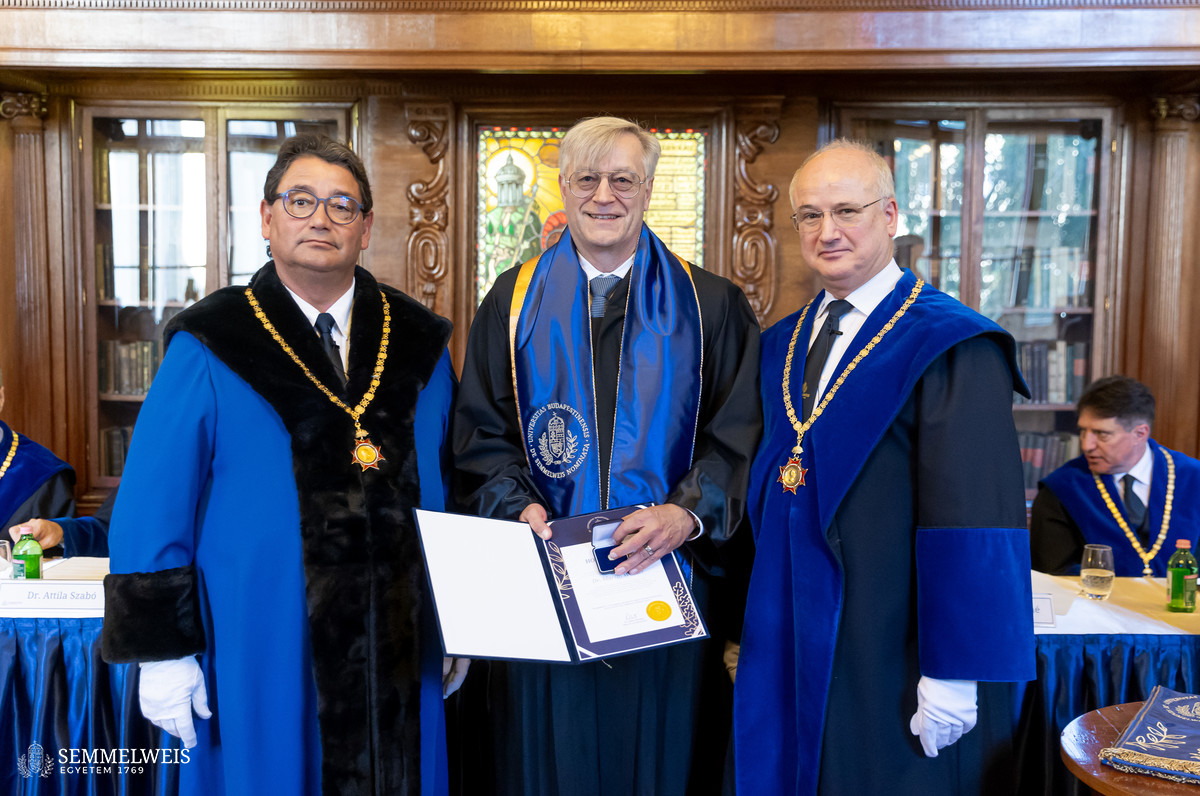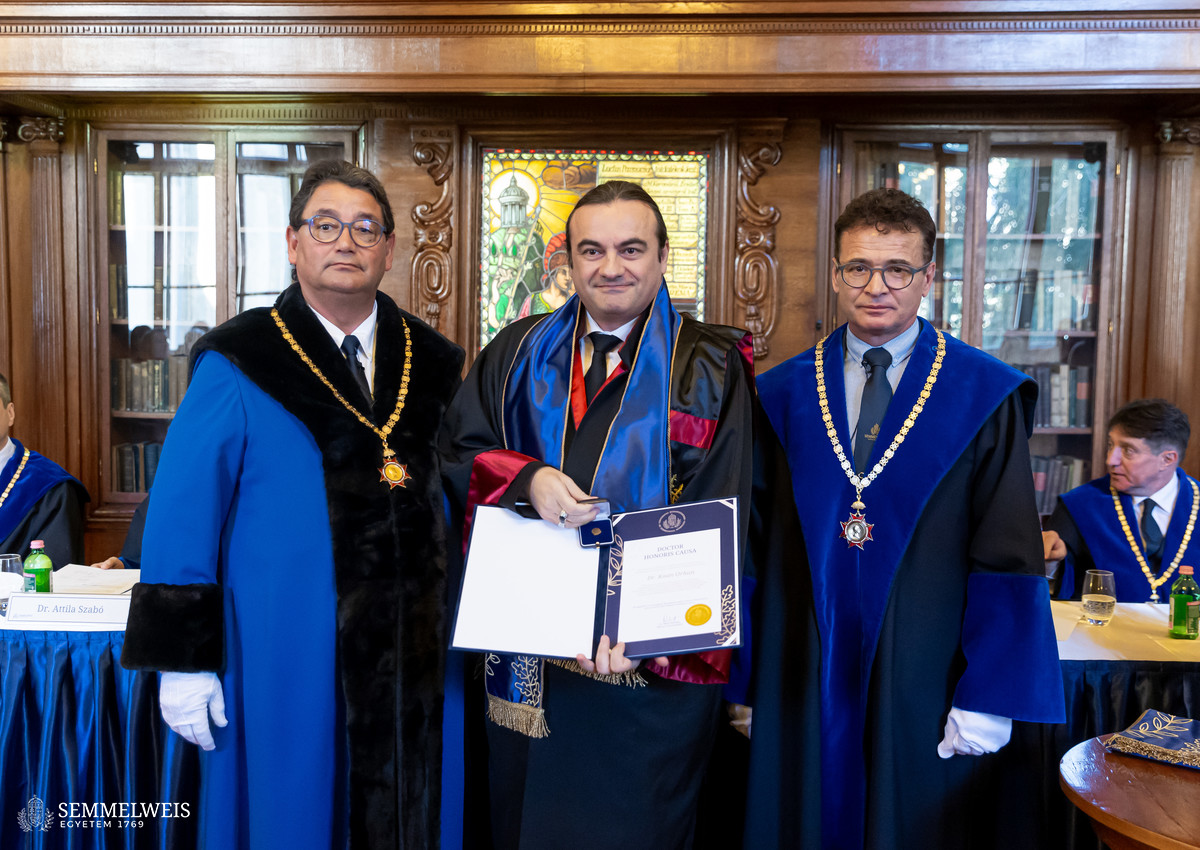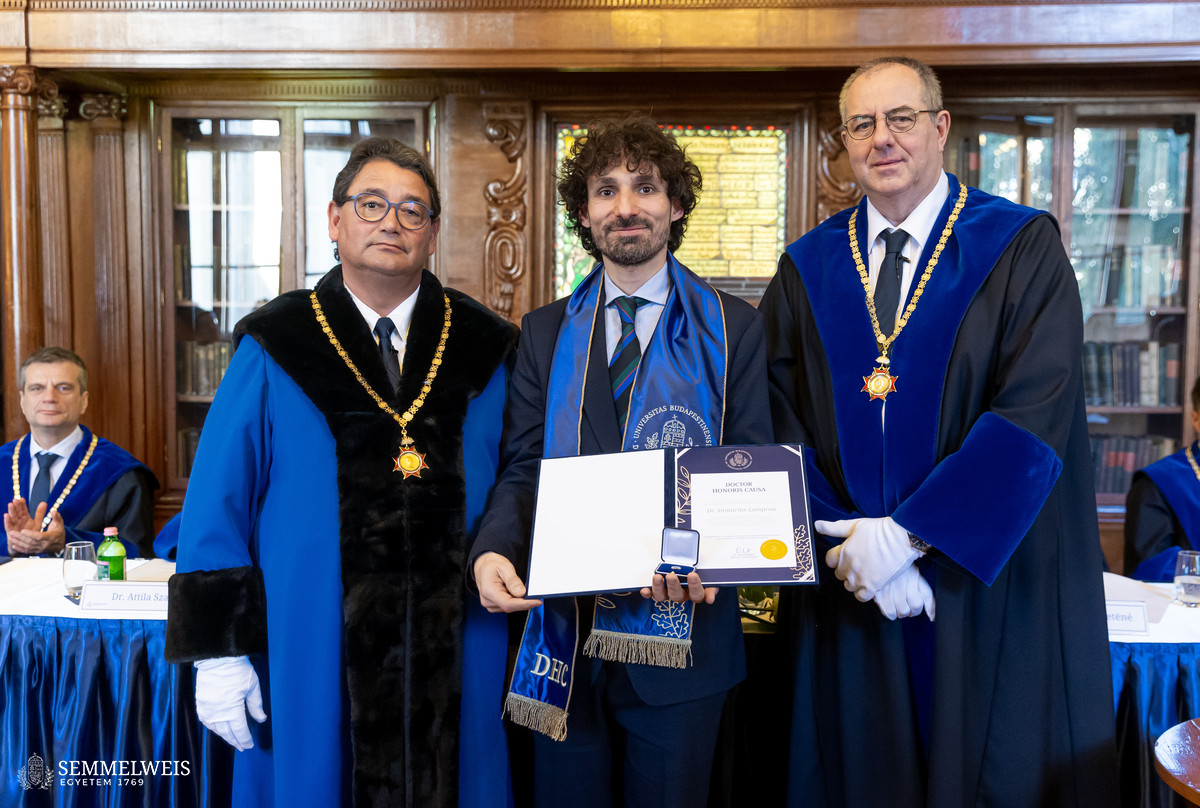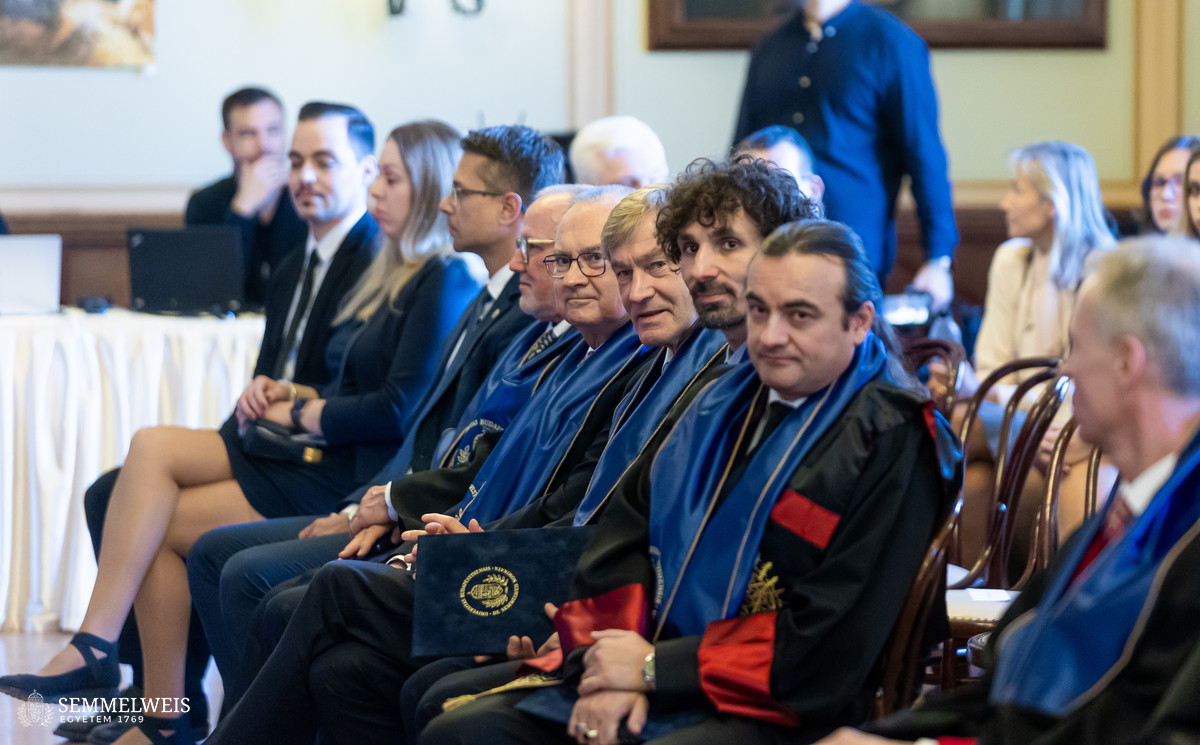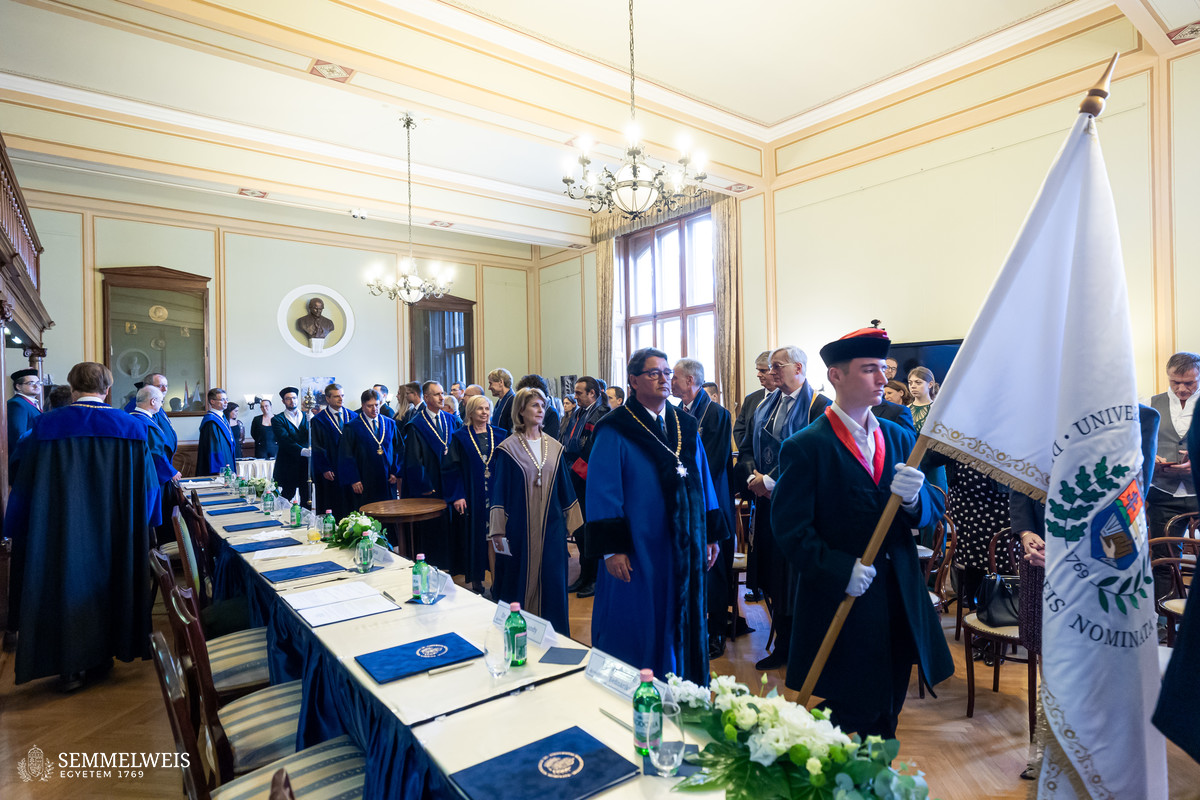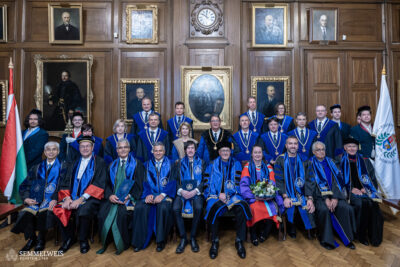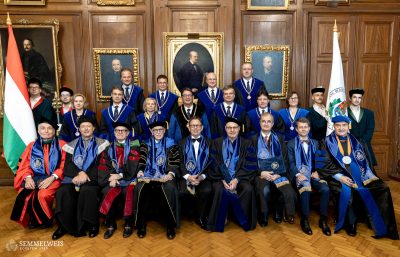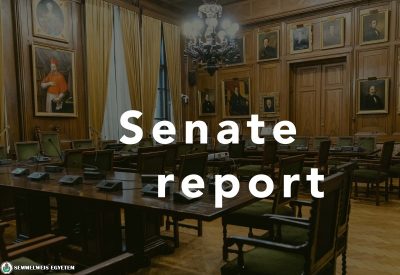In 2023, five professors were awarded honorary doctorates on the proposal of the Faculty of Medicine, one on the initiative of the Faculty of Dentistry and one on the recommendation of the Faculty of Pharmaceutical Sciences.
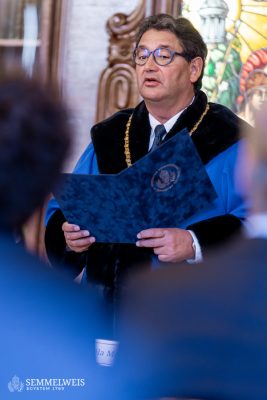 In his opening speech, Rector Dr. Béla Merkely emphasized that the honorary doctorate titles recognize professors who have achieved internationally indispensable scientific results and who also maintain important relations with Semmelweis University. As he recalled, “for scientific fame, one must work hard, with persistent, consistent work and diligence – and then one must also maintain the acquired glory, proving excellence over and over again. And only the best can do that.” He stressed that owing to the new honorary doctors, the university is expanding with new excellent citizens, and because of this, the Hungarian scientific life is further enlivened.
In his opening speech, Rector Dr. Béla Merkely emphasized that the honorary doctorate titles recognize professors who have achieved internationally indispensable scientific results and who also maintain important relations with Semmelweis University. As he recalled, “for scientific fame, one must work hard, with persistent, consistent work and diligence – and then one must also maintain the acquired glory, proving excellence over and over again. And only the best can do that.” He stressed that owing to the new honorary doctors, the university is expanding with new excellent citizens, and because of this, the Hungarian scientific life is further enlivened.
Internationality has long been a defining value of Semmelweis University, as the institution has been running foreign language programs since 1983, and today six faculties offer courses in English, German and Italian in addition to Hungarian, the rector pointed out. As a result, a third of the students are international, and Semmelweis Alumni live on almost every continent of the world. The university is a founding member of the EUniWell (European University for Well-Being) European University Alliances, also contributing to the strengthening of international relations.
Commenting on the prestigious university rankings, Dr Béla Merkely highlighted:
This result is due, among other things, to the university’s scientific performance, its internationally recognized educational quality and its participation in the international community. In these results and in our dynamic development, the forward-looking international relations we have established with the professors here play an extremely important role. Without these relationships, without the cooperation with you, Semmelweis University would not be able to achieve the successes that we can look back on with pride.
The laudations were presented by Dr. Miklós Kellermayer, Dr. Gábor Gerber and Dr. István Antal, Deans of the Faculty of Medicine, the Faculty of Dentistry and the Faculty of Pharmaceutical Sciences, respectively.
Dr. Ralf Konrad Bergmann is a professor at the Helmholtz Centre Dresden-Rossendorf, Germany. He graduated in biochemistry in 1976, received his doctorate in physiology in 1981, and a radiochemistry degree in 1984. He has been working closely with the Department of Biophysics and Radiation Biology at Semmelweis University since 2011, and became a visiting professor in 2018. Professor Bergmann is a renowned authority in the field of radioisotope tumor therapy, and SPECT and PET imaging. In his early career, he developed novel PET techniques for measuring blood circulation, then, since the 2000s, he has been instrumental in the development of new tumor target proteins and isotopic tumor therapy methods. Since 2020, he has been investigating the therapeutic possibilities of the SARS-CoV-2 infection. He is the author of more than 540 publications and 6 patents that generated a Hirsch index of 42. He authored 27 papers with Semmelweis University, which received over 3000 citations.
Professor Robert Hatala is head of the Department of Cardiology and Angiology, and Director of the Arrhythmia and Pacing Centre at the National Cardiovascular Institute and Slovak Medical University in Bratislava, Slovakia. He graduated as a medical doctor at the Comenius University School of Medicine in Bratislava, and earned his PhD in cardiovascular pathophysiology in 1989. He founded the Department of Arrhythmias and Clinical Electrophysiology in 1995, the first specialized center for complex arrhythmia management in Slovakia, which has grown into an institution carrying out interventions exceeding 2000 annually. In 2001, he was appointed professor of internal medicine-cardiology at his alma mater. Professor Hatala has been collaborating extensively with the Heart and Vascular Center of Semmelweis University in several international randomized trials, which yielded an array of publications. He was principal investigator of the Slovakian site in the Budapest CRT Upgrade Trial, a milestone investigation in cardiology care coordinated by the Heart and Vascular Center.
Dr. Gerd Heusch obtained his doctorate in 1985. Since 1999 he has been an adjunct professor in the Department of Physiology at the University of South Alabama. Since 2014 he has been serving as scientific chief executive of the West German Heart and Vascular Center Essen, he is also former president of the European Section of the International Society for Heart Research and of the German Cardiac Society. He is editor of Basic Research in Cardiology since 1992, and is member of the editorial boards of the most important international journals in the field of cardiology. Professor Heusch published more than 600 original and review articles in renowned international journals. His Hirsch index is 130. In each year between 2018-2022 he was recognized as ’Highly Cited Researcher’. Dr. Gerd Heusch is fellow of the Royal College of Physicians (London) since 2006 and regular member of the North Rhine-Westphalian Academy of Sciences and Arts since 2012 and speaker of its medical members since 2019. Professor Heusch’s research focuses on coronary blood flow and the pathophysiology of myocardial ischemia and reperfusion.
Professor Hendrik Scholl is the Chairman of the Department of Ophthalmology at the University of Basel and Adjunct Professor at the Wilmer Eye Institute of John Hopkins University. Dr. Scholl graduated from the Medical Faculty of the University of Tübingen, Germany, and later earned a master’s degree in philosophy. At the Wilmer Eye Institute, he led the Retinal Degeneration Clinic and the Visual Neurophysiology Service and was co-director of the Center for Stem Cells and Ocular Regenerative Medicine. Dr. Scholl is one of the world’s leading ophthalmic clinicians, who has conducted numerous research to understand retinal neurodegeneration and has also been active in the development of new drugs. He is the president of the European Vision Institute Clinical Research Network, which includes 17 countries, of which the Ophthalmology Clinic of Semmelweis University is also a member. He has more than 150 publications and has received many prestigious awards in Europe and the USA, including the European Vision Award.
Dr. Martin Werner received his habilitation at the University of Hannover in 1993. He heads the Tumorbank of the Comprehensive Cancer Center Freiburg. Since 2019 he has been a member of the Steering Board of the Center for Personalized Medicine Baden-Württemberg, Germany, and member of the Center’s Task Force in Molecular Diagnostics. Professor Werner is an internationally recognized pathologist with more than 360 publications. His research focuses on the response prediction and risk stratification of tumors and the molecular carcinogenesis and classification of solid tumors and hematological neoplasia. Professor Werner has been instrumental in the 2001 launching of a highly successful cooperation, named Jellinek Harry Scholarship program, between the University of Freiburg and Semmelweis University, opening the opportunity for early-career and experienced pathologists and researchers of Semmelweis University to join mutual research projects funded by national and international grants, such as ones from the DAAD. The collaboration yielded an array of international publications. Professor Werner has been regular keynote speaker at the biennial scientific symposia organized trilaterally by the University of Freiburg, the University of Heidelberg and Semmelweis University, and at the annual conferences of the German Society of Pathology within the frame of the German-Hungarian Working Group. Professor Werner is tutor and thesis advisor in the joint PhD program of Semmelweis University and Albert-Ludwigs-Universität that started in 2021.
Professor Kaan Orhan is the Dean of the Faculty of Dentistry, and head of the Dentomaxillofacial Radiology Department of Ankara University, Turkey. His collaboration with Semmelweis University goes back to 2008. Five co-authored scientific publications have been published so far involving researchers from departments of Semmelweis University’s Faculty of Dentistry, and two publications served as a basis for PhD degrees. He has over 400 SCI international publications on peer-reviewed journals, and received over 6,500 citations from his studies with a Hirsch index of 43. With his book titled ‘Artificial Intelligence Application in Dentistry’ he received the Innovative Dentist of the Year award in 2020. He was also included in the ‘World’s Most Influential Scientist’ list published by Stanford University in 2021-2022, at the rate of 2% according to academic and scientific performance among 7 million researchers all over the world.
Dr. Dimitrios Lamprou is Chair of the Biofabrication and Advanced Manufacturing Program at Queen’s University Belfast and Director of the Industrial Pharmaceutics MSc. Professor Lamprou is an outstanding expert in Emerging Biopharmaceutical and Pharmaceutical Technologies, and world pioneer in the field of 3D printing and microfluids. Professor Lamprou’s research focuses on three areas: imaging and therapeutic applications of nanoparticles, lab-on-a-chips and microfluidic devices, and implants for therapeutic delivery and tissue engineering. He gained experience as a university instructor in the United Kingdom, he also participated in the development of 2 de novo master’s programs. He is an active contributor to several scientific journals (including Nature Nanotechnology) and author of more than 150 publications. His work has been recognized with numerous awards, including the Royal Pharmaceutical Society Science Award and the Scottish Universities Life Sciences Alliance (SULSA) Leaders Scheme Award. He has also been named in the Stanford University’s list 2021 & 2022 of World’s Top 2 percent of Scientists, for his research in Pharmaceutics and Biomedical Engineering.
After the laudations, Rector Dr. Béla Merkely and the deans nominating the recipients presented the honorary doctorate certificates and stoles to the awardees, followed by their personal acceptance speeches.
The ceremony concluded with a performance of Paganini’s 24th Caprice by violinist Éva Kóbor, representing the Medic Orchestra.
Viktória Kiss, Mária Sánta, Judit Szabados-Dőtsch
Photo: Attila Kovács – Semmelweis University
